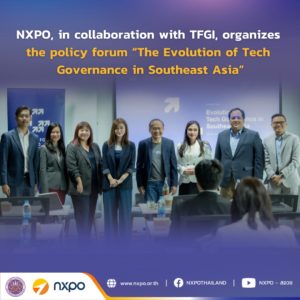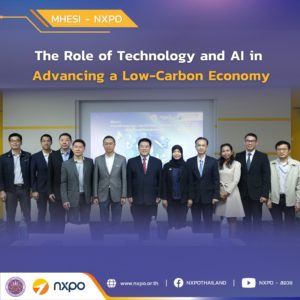On 21 August 2024, Dr. Siriporn Pittayasophon, Senior Strategist and Acting President of NXPO, delivered a presentation titled “Science in Diplomacy: The Role of Scientists Towards Achieving the 2030 SDGs” at the Pilot Science Diplomacy Workshop for Early-to-Mid Career Researchers in ASEAN Plus Three. The workshop was organized by Thailand Science Research and Innovation (TSRI) and the National Science Museum (NSM), in collaboration with the American Association for the Advancement of Science (AAAS) and The World Academy of Sciences (TWAS). This initiative aims to introduce young researchers and policymakers in ASEAN, China, Japan, and South Korea to the principles of science diplomacy, enabling them to leverage science to foster diplomatic relations, and facilitate evidence-based policymaking.
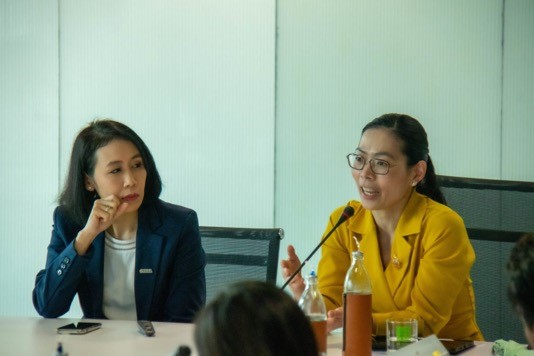
During her presentation, Dr. Siriporn emphasized the crucial role of scientists in shaping policy, citing the development of Frontier Research Roadmap as an example. In 2018, NXPO convened 500 young scientists to meet with the Prime Minister, resulting in the proposal of four frontier research areas cirtical to the national development: 1) Food for the Future, 2) Health Frontier, 3) Future Energy, and 4) Future Threats and Opportunities. To further advance Thailand’s synthetic biology ecosystem, NXPO spearheaded the formation of the Thai SynBio Consortium in 2021. This consortium, comprising 22 members from public, private, and academic sectors, seeks to harness synthetic biology for economic growth and sustainable development in Thailand.
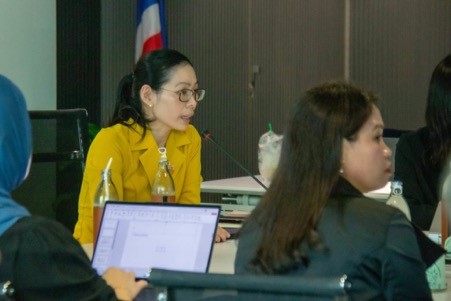
Dr. Siriporn also outlined key policies supporting science diplomacy in three areas: infrastructure, human resources, and funding. One such initiative is the establishment of regional science parks, which foster research and innovation across a network of 44 universities nationwide. These science parks provide facilities and support for SMEs and startups, enabling them to develop innovative products and technologies. They are instrumental in driving regional economic growth, attracting investment, creating jobs, and promoting high-tech industries. In addition, Food Innopolis, established in 2016, serves as a global hub for food innovation, offering comprehensive R&D services by maximizing the infrastructure of universities and regional science parks.
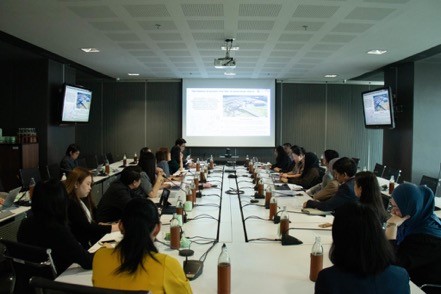
The Eastern Economic Corridor of Innovation (EECi) in Rayong Province is another key infrastructure for research and innovation. Sandbox space is set up within EECi to provide an environment where new technologies can be tested and further developed. This helps attract global companies and world-class research institutes to invest in the region, enhancing Thailand’s position in the international innovation landscape. The Thailand-CERN collaboration, initiated by Her Royal Highness Princess Maha Chakri Sirindhorn and formalized in 2009, has facilitated nuclear research collaborations between the European Council for Nuclear Research (CERN) and Thai research institutions, including the Synchrotron Light Research Institute, Chulalongkorn University, and Suranaree University of Technology. The Franco-Thai Young Talent Research Fellowship Program, supported by the French Ministry for Europe and Foreign Affairs and Thailand’s PMU-B, provides postdoctoral grants to foster Thailand-France research collaboration. The ASEAN Talent Mobility Program mobilizes top talent from universities and research institutions across ASEAN to support industry sectors in advancing technology and innovation, thereby enhancing regional competitiveness. Moreover, numerous joint funding programs between MHESI agencies and international counterparts have been established to promote global research partnership.
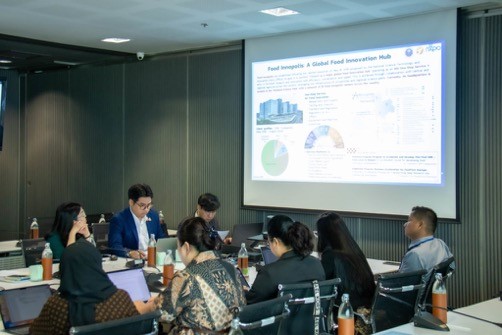
Dr. Siriporn highlighted four essential components of science diplomacy: 1) Smart Policies—where scientists provide evidence-based data to inform government decisions, resulting in more effective policies; 2) Global Teamwork—enabling scientists from different nations to collaborate and develop solutions more rapidly; 3) Building Trust—using science as a bridge to connect people and foster mutual understanding, particularly during times of political tension; and 4) Empowering Everyone—ensuring that scientific knowledge and skills are accessible to all in pursuit of the Sustainable Development Goals (SDGs).
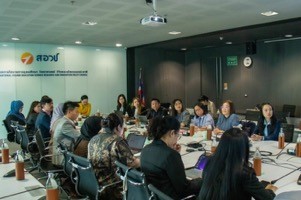
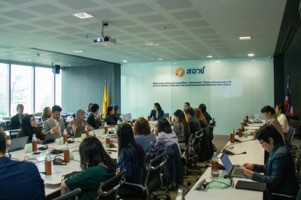
Dr. Siriporn concluded her presentation by outlining strategies to further strengthen science diplomacy, including 1) Building Networks and Partnerships, 2) Engaging Policymakers and the Public, 3) Capacity Building, and 4) Promoting Open Science.


